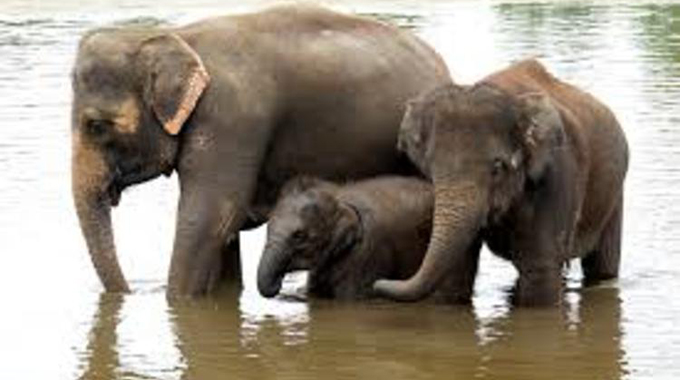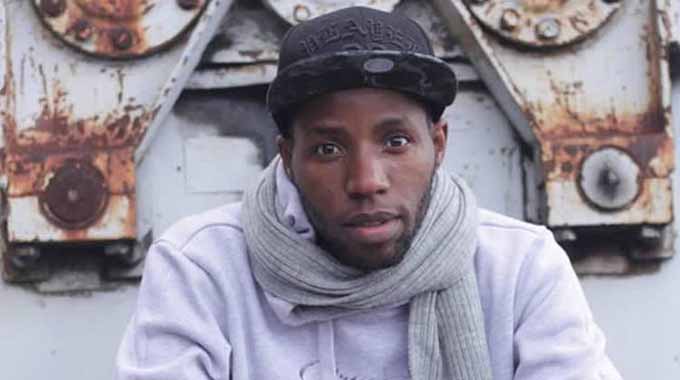Showdown as Cites conference opens in Geneva

Jeffrey Gogo Climate Story
The 183 parties to the Cites are meeting in Geneva, Switzerland, for their biennial conference, with Botswana, Namibia and Zimbabwe seeking to get clearance to sell their raw ivory, running into several thousands of kilogrammes.
In total, the Convention on International Trade in Endangered Species of Wild Fauna and Flora (Cites) meeting will “consider 56 proposals submitted by governments to change the levels of protection of species of wild animals and plants that are in international trade.”
The conference is running for two weeks until August 28.
Of those proposals, however, three have stirred-up particular sharp interest throughout the world and they all relate to ivory poaching and the African elephant, a species considered endangered or at the risk of extinction under Cites.
The proposals include trade of ivory stockpiles, trade in live African elephants and closure of domestic ivory markets. It then is the first two, supported by Botswana, Namibia, South Africa, Zambia and Zimbabwe, and opposed by the rest of the world, including a puppet coalition of 32 African countries, that have pseudo-wildlife activists up in arms.
Zambia wants its elephants downgraded from Appendix I to Appendix II, which would allow it to sell live animals as well as trade commercially in ivory to countries approved by Cites.
The Southern Africa country is also seeking approval to trade in hunting trophies for non-commercial purposes and to trade in hides and leather goods.
Unlike Zambia, elephants from Zimbabwe, Botswana, South Africa and Namibia are already on Appendix II, which means the four range states have enjoyed some limited liberty on what they can do to better manage their herds and ivory.
In their proposal, the four countries are seeking to amend Annotation 2 of Cites Appendices in order to remove the restrictions and allow international trade in registered raw ivory.
The planned amendments are on the basis that previous elements of the restrictions “are no longer relevant or not appropriate,” especially in view of the expiry of the nine-year moratorium on commercial ivory sakes in 2017. The Southern African countries have demonstrably grown impatient and their willingness to keep up their end of the bargain may finally be waning out. In the months running up to the Geneva conference, the countries’ Presidents publicly stated that they would not be stopped from benefiting financially from their elephant, setting up a showdown with Cites state parties that have to date refused to throw the Southern African countries a lifeline.
President Mnangagwa told a summit on elephants in Botswana in May that “the one-size-fits-all banning of everything under Cites, disregarding the good efforts and investments by our respective governments, is neither sustainable nor desirable.”
But by last Friday, a day ahead of the start of the conference, a great deal of resistance had started to emerge, both from within Africa, as championed by the puppet coalition of 32, and from Western-sponsored animal rights groups.
As has become the norm, opposition is based on unscientific and generally immoral arguments, including the fear of driving illegal killings of the African elephant and oblique governance issues.
Encouraging state parties to oppose Zambia’s proposal, Donald Lehr, a media consultant representing three influential Western wildlife groups, said: “Any down-listing sends a message that ivory trade could reopen, fuelling trafficking and threatening elephants across Africa and Asia.”
Lehr suggested poaching was increasing within Southern Africa, urging governments to ignore proposals from Zimbabwe, Botswana, Namibia and South Africa. “(This) will fuel demand, poaching and trafficking, and impact elephants in all range states,” he said in an emailed statement.
“Ivory sales in 2008 led to a devastating escalation of poaching for ivory. On-going efforts to combat poaching and trafficking will be undermined,” Lehr opined.
On the contrary, Lehr lended support to proposals by the African Elephant Coalition, a grouping of 32 puppet African countries who failed to manage their elephants, to shut down all ivory markets, both domestic and international and to upgrade Botswana’s elephants, the largest population in Africa, to Appendix I.
The African Elephant Coalition, which is made up mostly of countries in West and Eastern Africa, is opposed to everything that the Southern African proponents are looking for.
There’s little doubt that the Geneva leg of the Cites summit is billed to become one of the most contentious summits in the history of the Convention, now regarded in some quarters as a monopoly institution that furthers neo-colonial interests.
Wildlife colonialism, as former Environment Minister Oppah Muchinguri Kashiri put it.
God is faithful.










Comments